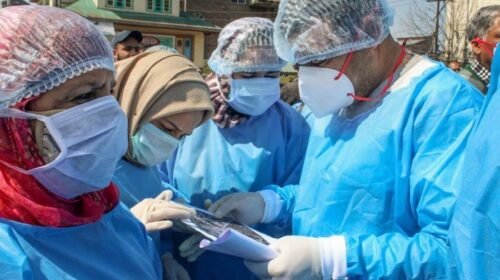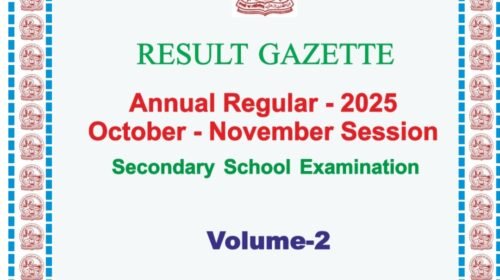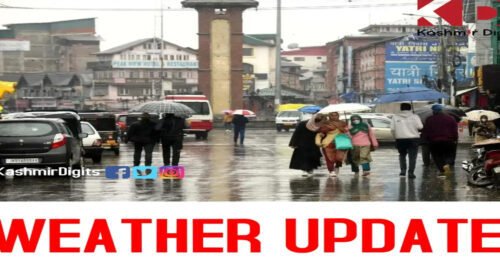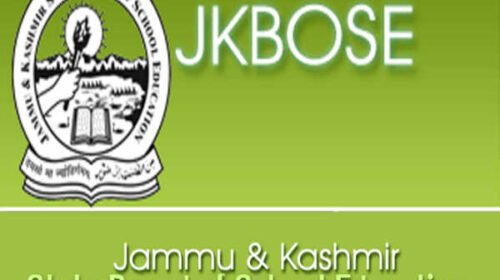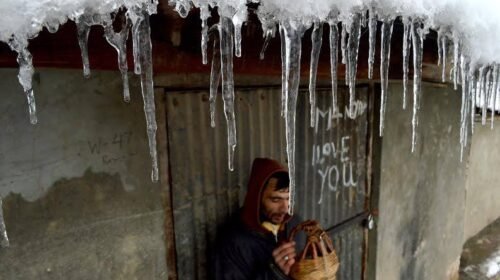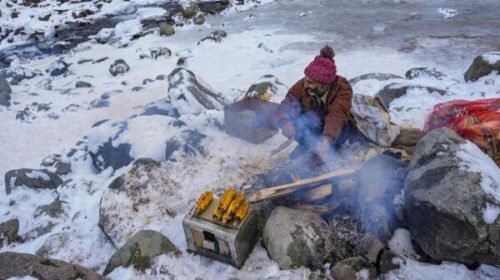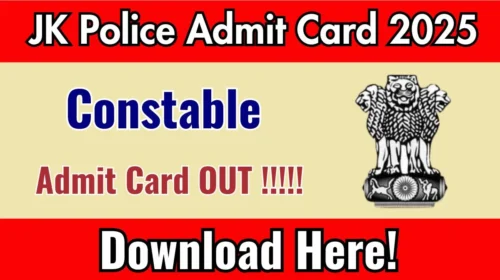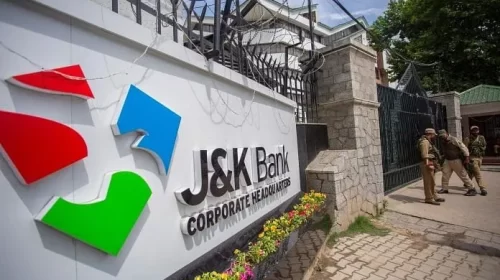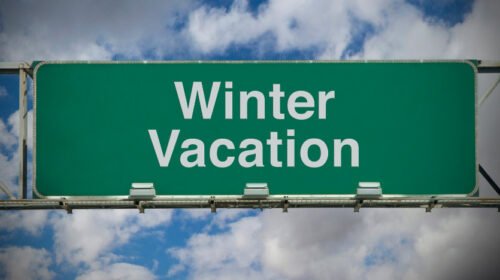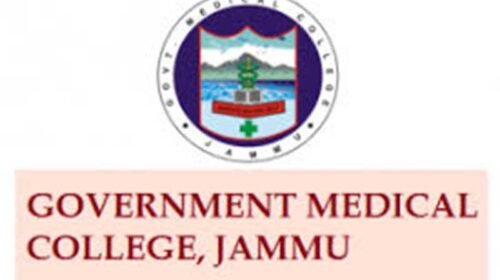Brothers Mohammad Siqqique and Habib who were separated at the time of partition of India in 1947, reunited after 74 years at the Kartarpur Corridor.
Muhammad Siddique and Habib alias Shela, who are both believed to be in their eighties, were separated in 1947, when British rule ended in India.
At least 20million people were displaced during the largest mass migration in human history in 1947, while visas between India and Pakistan have remained difficult to obtain since.
But the two brothers were reunited in Kartarpur, Pakistan, after Habib travelled from the Phullanwal area of the Indian Punjab to meet his younger brother Saddiq, who lives in Faisalabad, Pakistan, local media reported.
In the clip, the two brothers walk towards each other before bursting into tears of joy as they throw their arms around each other in a tight embrace.
As they hold each other, one of the brothers says: ‘Don’t cry, don’t worry, we’ve finally reunited after all these years, don’t cry.’
The brothers both wipe tears from their eyes as they finally reunite, with the emotional moment seeming to overwhelm them.
According to Siddique, his brother and sister had gone to his grandparents’ house with his mother in 1947. “A civil war was raging on and my father and other family members decided to migrate immediately to save lives and we came to Pakistan,” he said.
Habib from Indian Punjab said it was the happiest day of his life.
Siddique, a resident of Phugaran village on the outskirts of Faisalabad district, said he had contacted a Sikh social worker from Canada two years ago. He said the social worker had helped reunite the two brothers.
Netizens have been curious about why it took so long for the brothers to meet. Like many others, they’d presumed each other dead and only because of a group that unites people across borders was this meeting possible. The two found each other two years ago but had to wait to unite because of the pandemic.
The emotional video of the two brothers meeting after all these years has tugged at the heartstrings of Punjabis around the world, some of whom still remember the harrowing Partition that gave rise to two nations and also created two Punjabs — Charda Punjab in India (towards the rising Sun) and Lehnda Punjab in Pakistan (towards the setting Sun).
Yet, despite the geopolitical split, the brothers could communicate perfectly with each other in Punjabi, using the same dialect. Saddiq Khan, who is the only one out of the two to have started a family, introduced his children, noohan (daughters-in-law), and pote-potian (grandchildren) to Habib.
Punjabi Lehar is a group “is endeavouring to bridge a gap between the people of East and West Punjab, created by the partition of 1947.” The full video of the reunion is posted on their YouTube channel.
| Install Our App | DOWNLOAD |
| Join Telegram Channel | JOIN NOW |
| Join Facebook Group | JOIN NOW |
| Subscribe YouTube Channel | SUBSCRIBE |
| Follow On Twitter | FOLLOW |
| Follow On Instagram | FOLLOW |
How The Reunion Unfolded?
Nasir Dhillon and Lovely Singh run Punjabi Lehar — a popular YouTube channel that focuses on reuniting families from the two Punjabs — from Pakistan.
Dr Jagsir Singh, a resident of Phulewala who was involved in arranging the brothers’ meeting, told ThePrint that Dhillon and Lovely Singh had visited Bogran in May 2019 to conduct an interview for a story. This is when they learned about Saddiq Khan and his desire to meet his long-lost brother.
“The village lambardar (headman) is Saddiq’s nephew. He told [the film-makers] about Saddiq looking for his brother in India. Nasir immediately created a video message from Saddiq, in which he named the village Phulewala and that he was looking for his brother,” Jagsir Singh said.
Saddiq’s message in the video was short and sweet: “Habib, I have been looking for you for many years. If you can see me, please contact me. I am 80 years old and I don’t know how long I will live, but I really long to meet you.”
Within two days of being uploaded on Punjabi Lehar, the video rang a bell with one of Dr Jagsir’s relatives who lives in Jagraon and knew about the family of Saddiq and Habib. He sent the video to Dr Jagsir, who thought there was something familiar about the elderly man speaking.
“Habib is one of the few Muslims in the village. When I saw the video, I realised how similar Saddiq looked to Habib. I showed the video to Habib and he started crying. Then we made them talk to one another through a video call on the mobile phone,” Jagsir said.
In their first conversation with one another, Saddiq asked Habib about their mother, and learned that she had passed away decades earlier. Saddiq, on the other hand, told Habib about their father’s death. They also discussed various uncles and cousins.
“Tu shaadi nahi karayi (Did you not get married)?” Saddiq asked Habib. When he came to know that Habib had no land in the village and had lived in penury, he said over the phone, “Whatever I have here belongs to you.”
Habib told Saddiq that he too had tried to look for him. He and his cousins tried to contact people from across the border and send messages but nothing came of it.
“We in India and Nasir in Pakistan decided that we must make them meet at the Kartarpur corridor. They are so old and we would not have been able to forgive ourselves if something happened to them before they could meet,” Jagsir said.
The Kartarpur corridor is a 4.7-km-long drivable passage on the India-Pakistan border that allows Sikh pilgrims from India to visit Gurdwara Darbar Sahib in Kartarpur, Pakistan.
The meeting was fixed for March 2020, but was delayed due to the Covid lockdown, during which the Kartarpur corridor was also closed. “When it reopened, we brought him to meet his brother,” Jagsir said.
“How the two brothers finally found each other was fateful. It’s because of the glory of Waheguru. They met at Darbar Sahib at Kartarpur, and it is that Guru that should be given credit, and not us,” he added.


